Table of Contents[Hide][Show]
- 1. Superintelligence: Paths, Dangers, Strategies by Nick Bostrom
- 2. Artificial Intelligence: A Modern Approach by Peter Norvig and Stuart Russell
- 3. T-Minus AI: Humanity’s Countdown to Artificial Intelligence and the New Pursuit of Global Power by Michael Kanaan
- 4. The Master Algorithm by Pedro Domingos
- 5. Hands-On Machine Learning with Scikit-Learn, Keras, and TensorFlow by Aurélien Géron
- 6. The Quest for Artificial Intelligence by Nils J. Nilsson
- 7. Godel, Escher, Bach by Douglas Hofstadter
- 8. Deep Learning by Ian Goodfellow
- 9. Final Jeopardy: The Story of Watson, the Computer That Will Transform Our World by Stephen Baker
- 10. The Emotion Machine: Commonsense Thinking, Artificial Intelligence, and the Future of the Human Mind by Marvin Minsky
- 11. Life 3.0: Being Human in the Age of Artificial Intelligence by Max Tegmark
- 12. Weapons of Math Destruction by Cathy O’Neil
- 13. If Then: How the Simulmatics Corporation Invented the Future by Jill Lepore
- 14. The Annotated Turing by Charles Petzold
- 15. The Alignment Problem: Machine Learning and Human Values by Brian Christian
- 16. Speech and Language Processing by Daniel Jurafsky and James Martin
- 17. Do Androids Dream of Electric Sheep? by Philip K. Dick
- 18. The Diamond Age by Neal Stephenson
- 19. Avogadro Corp: The Singularity Is Closer Than It Appears by William Hertling
- 20. I, Robot by Isaac Asimov
- Conclusion
It’s becoming easier to make machines act intelligent.
For instance, social media algorithms seem to know you more than your friends and family. Machines are now replacing low-skill workers.
In addition, it’s becoming difficult to tell computer-generated text from a human’s. AI is quickly becoming ubiquitous.
This article explores twenty great books about artificial intelligence you can read.
These works range from novels that have shaped the public understanding of AI to comprehensive guides to understanding the pillar ideas of the field.
Some of these books are historical. These books uncover how early engineers and computer scientists built pioneer intelligent systems.
Other books about artificial intelligence on this list explore the philosophy and ethics of technology.
Read on to find the best books that will satisfy your curiosity about AI.
1. Superintelligence: Paths, Dangers, Strategies by Nick Bostrom
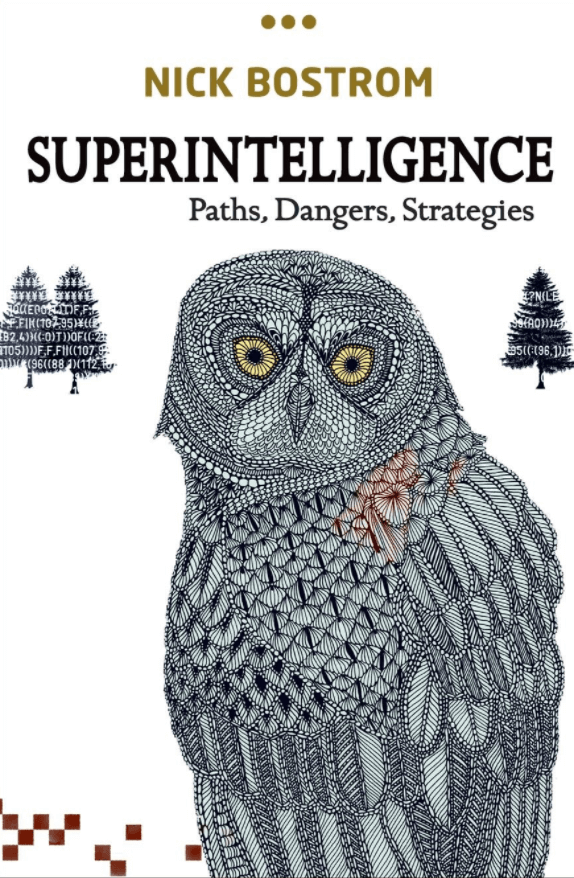
Nick Bostrom is a Swedish-born philosopher known for his work on the risks of superintelligence. He is currently a Professor at Oxford University as the director of the Future of Humanity Institute.
His book Superintelligence is an ambitious attempt at presenting the landscape of AI. It tackles topics such as oracles, instrumental convergence, collective intelligence, and mind crime.
Bostrom considers whether it is possible to design an AI that will never be out of our control.
If you want to know more about the issues AI presents to our future, this book is definitely a good place to start.
Available in Audio on Blinkist →
2. Artificial Intelligence: A Modern Approach by Peter Norvig and Stuart Russell
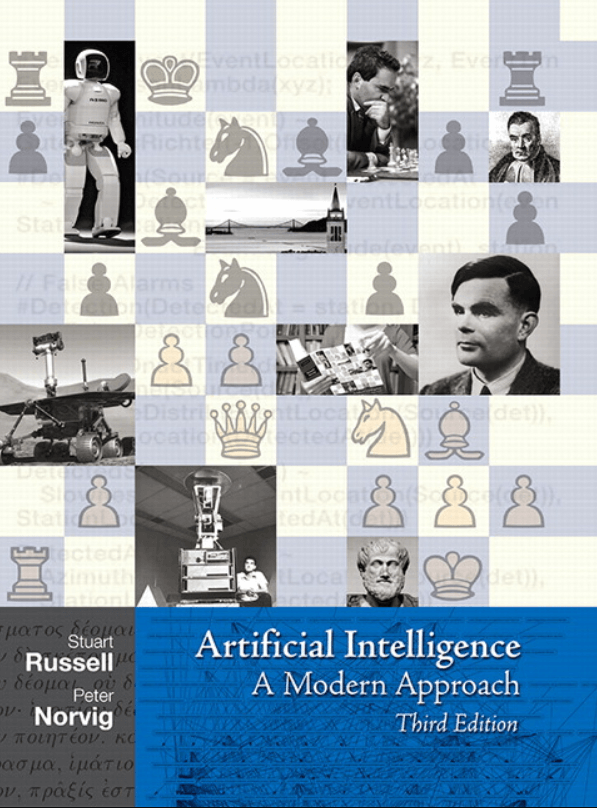
This textbook is a comprehensive introduction to the theoretical and practical side of artificial intelligence. It is commonly used as a companion textbook for undergraduate or graduate-level courses.
It covers a wide array of topics, including machine learning, deep learning, robotics, natural language processing, and probabilistic programming.
It is enormous in scope, fitting dozens of topics in over 1100 pages.
If you’re considering looking for a course that goes well with this book, you can check out UC Berkeley’s CS188 course.
3. T-Minus AI: Humanity’s Countdown to Artificial Intelligence and the New Pursuit of Global Power by Michael Kanaan
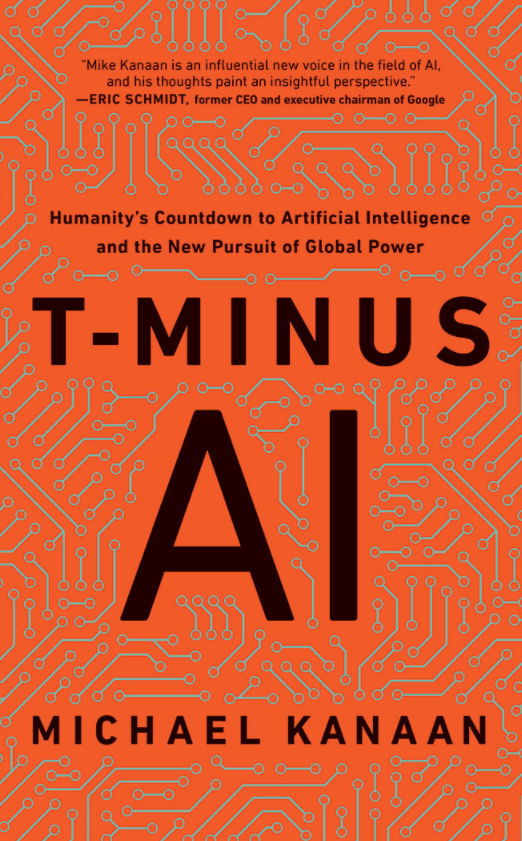
T-Minus AI explores the world of AI through a human-oriented perspective. Kanaan looks into the global implications of AI through current cultural and national issues.
He cites China using AI to fulfill its authoritarian influence. He takes a look at how Russia is starting to weaponize AI with its military.
The author Michael Kanaan shares his perspective as a known expert and US Air Force chair for Artificial Intelligence.
T-Minus AI is a must-read call-to-arms that educates you on the geopolitical power AI has.
4. The Master Algorithm by Pedro Domingos
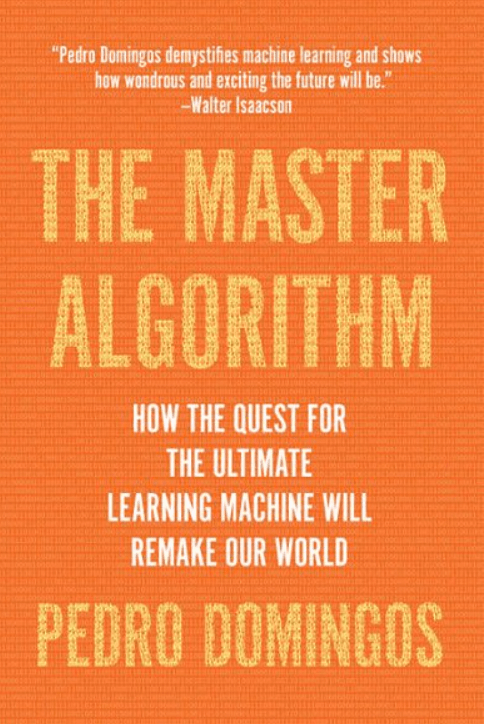
Machine learning is changing the world, but its technical aspects often overshadow the genius concepts behind math. The Master Algorithm is an entertaining, easy-to-read journey through the ideas behind machine learning.
Pedro Domingos is a professor of computer science at the University of Washington and is a winner of the SIGKDD Innovation Award, one of the highest awards in data science.
He lends his expertise to creating an informative guide on the technologies that power tech giants like Google and Amazon.
The eponymous Master Algorithm refers to a future universal learner, which Domingos predicts will fundamentally change our society.
5. Hands-On Machine Learning with Scikit-Learn, Keras, and TensorFlow by Aurélien Géron
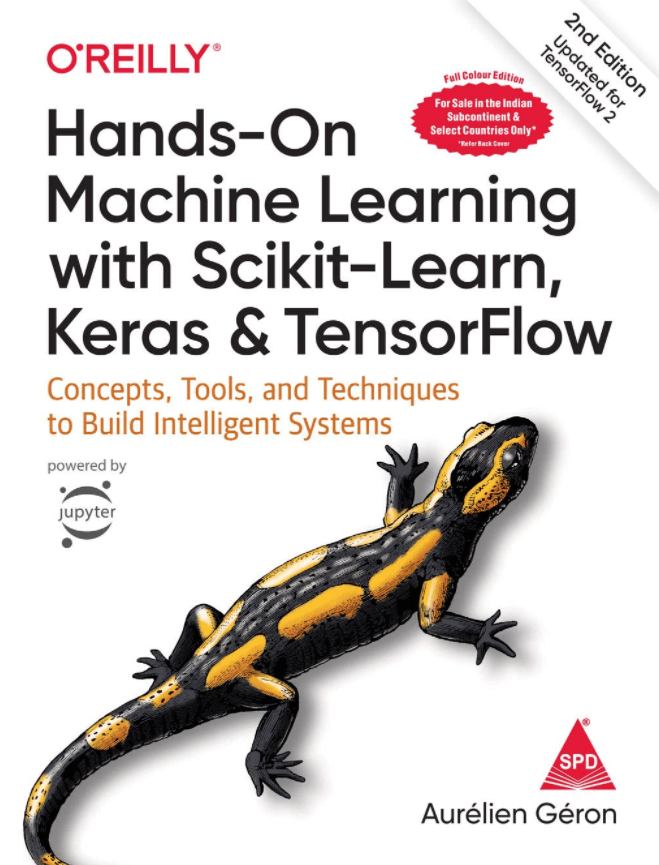
If you prefer a more practical guide into Artificial Intelligence, this book is for you. Author Geron will help you gain a good understanding of building intelligent systems.
Python is currently the most popular programming language in machine learning and data science.
Hands-on Machine Learning provides instructions on how to use Python and Python frameworks such as Scikit-Learn and TensorFlow to help you build and train your own neural nets.
This book is for people who have a technical background who want to dive into deep learning.
This book assumes that you have some Python programming experience and are familiar with libraries such as Pandas and NumPy.
Still, it assumes you know nothing about machine learning. There are exercises for you to do in each chapter to help you practice what you learn.
6. The Quest for Artificial Intelligence by Nils J. Nilsson
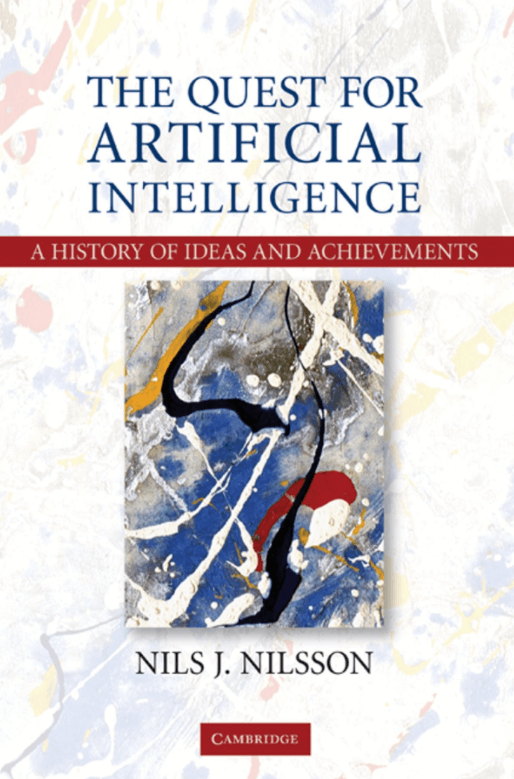
Nils Nilsson provides a definitive history of AI and how the field of AI has evolved to solve humanity’s problems.
It starts by describing the early aspirations of pioneer thinkers from the 18th century and ends up with a glimpse of how today’s AI engineers currently work.
It is full of illustrations that can help you understand how AI systems actually function. If you’re looking for a historical reference or a chronology of the evolution of Artificial Intelligence, this book is a perfect guide.
Nilsson is uniquely qualified to be the historian in this work, having been a “founding father” AI researcher since the 1960s.
7. Godel, Escher, Bach by Douglas Hofstadter
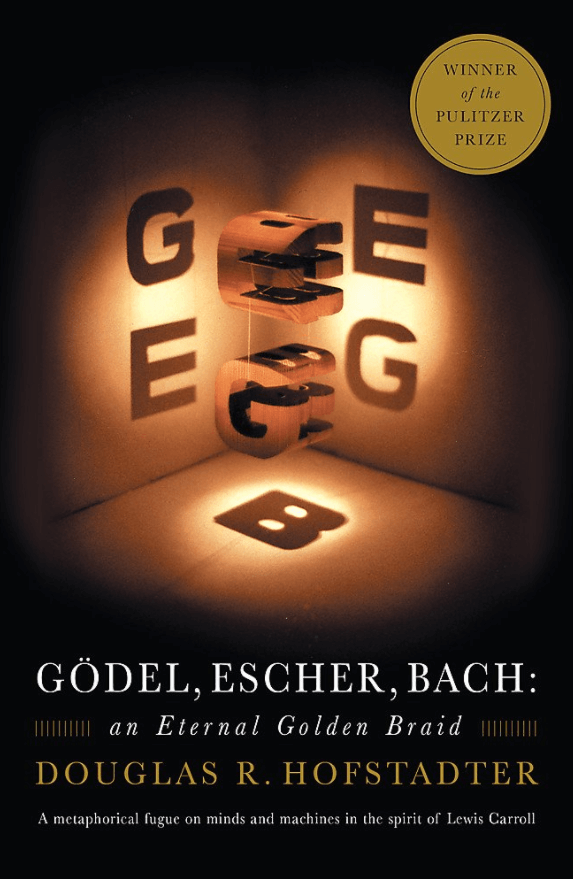
Hofstadter explores the mind-twisting nature of emergent properties through the lens of mathematics, music, and art.
Through the use of optical illusions and self-referential mathematics, GEB tries to approach the strangeness of consciousness and how something so mystical could possibly be explained in theory.
This book is recommended for those who are into mathematics and music theory.
The complex puzzles presented in the book may take some time to comprehend but are a great look into discussing a wide variety of topics such as consciousness, complexity, and intelligence.
8. Deep Learning by Ian Goodfellow
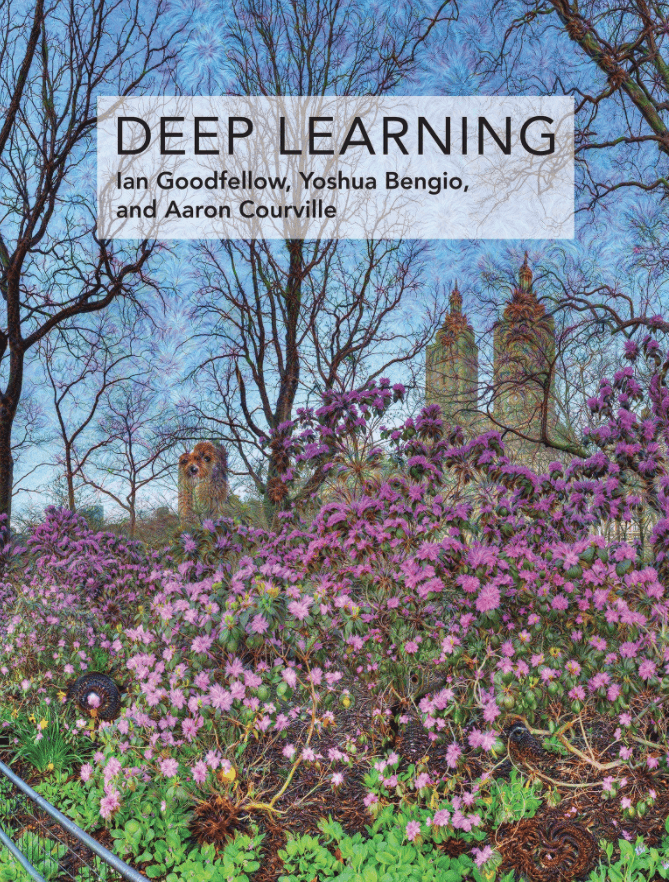
This textbook by Ian Goodfellow will give you an excellent mathematical and conceptual background of topics relevant to deep learning. It tackles linear algebra, information theory, and machine learning concepts.
Later in the book, Goodfellow describes various deep learning techniques used in the industry, including convolutional networks, deep forward networks, and sequence modeling.
Because of the number of topics this book covers, it’s definitely a great reference for people already into deep learning.
Deep Learning will certainly be useful for students planning to learn more about DL and for software engineers who plan on implementing deep learning tech into their projects.
9. Final Jeopardy: The Story of Watson, the Computer That Will Transform Our World by Stephen Baker
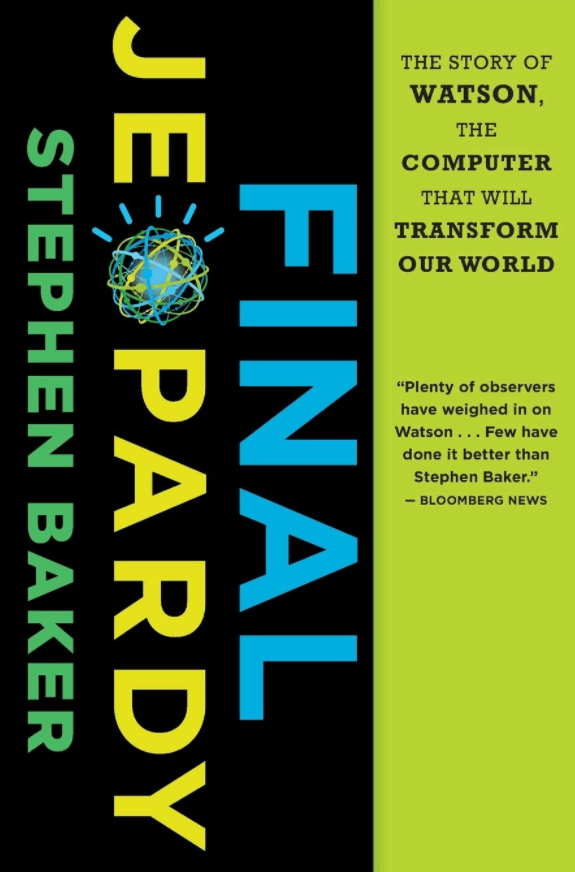
Final Jeopardy is an engaging journey into how IBM used advanced AI to create the world’s best Jeopardy contestant.
It explores the story behind the Watson AI and how it came to become part of the world-famous game show.
We follow the IBM Watson team as they work with a limited budget and approaching deadlines to produce a supercomputer that can skim through the world’s knowledge in a split second.
Baker later expands on how Watson’s breakthrough can transform the fields of medicine, law, and science itself. His book is a gripping case study of how artificial intelligence can beat humans at their own game.
If you have an interest in trivia, language, and pop culture, this book will definitely be a fun read for you.
10. The Emotion Machine: Commonsense Thinking, Artificial Intelligence, and the Future of the Human Mind by Marvin Minsky
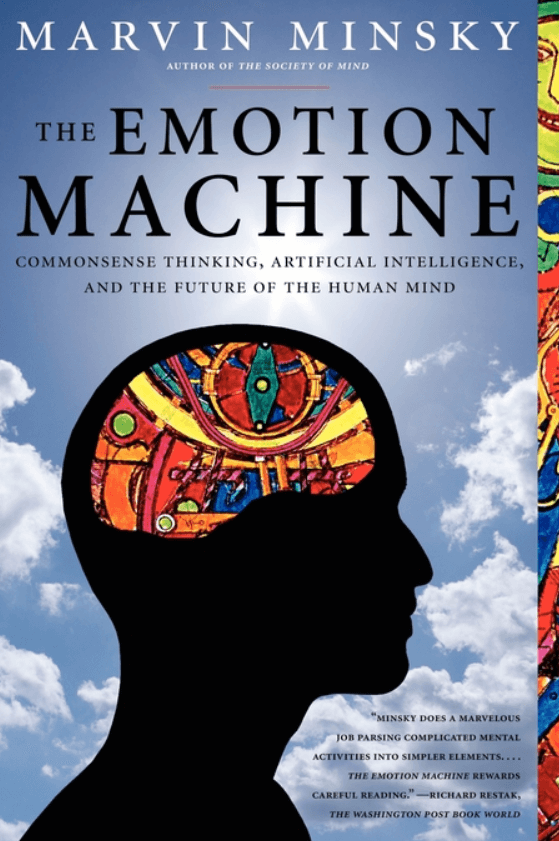
Marvin Minsky offers a fascinating new model of how our minds work. He shows how minds could have developed from thinking about simple thoughts to becoming a complex self-aware consciousness.
He later connects his findings with artificial intelligence, making a case that AI may also have the potential to achieve consciousness.
The Emotion Machine is an accessible and informative look into Minsky’s theoretical framework for artificial intelligence and emotion. Definitely a must-read for anyone interested in both AI and human psychology.
11. Life 3.0: Being Human in the Age of Artificial Intelligence by Max Tegmark
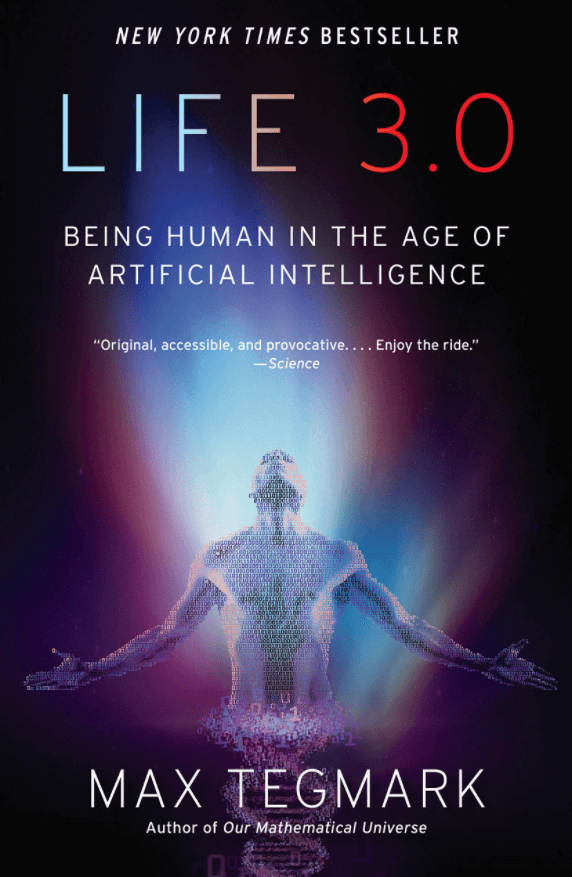
Max Tegmark is an MIT professor who loves to write about super-intelligent AI. His book Life 3.0 shows us a glimpse of the future with AI and how our lives will change.
This book about artificial intelligence is a thoughtful guide into how we can take steps to create a better future with AI.
Will the future be utopian or dystopian in nature?
Tegmark offers multiple possible futures to the reader and asks them to come up with their own conclusions.
In conclusion, Life 3.0 is a great societal analysis of how much our future hinges on how we develop our AI.
12. Weapons of Math Destruction by Cathy O’Neil
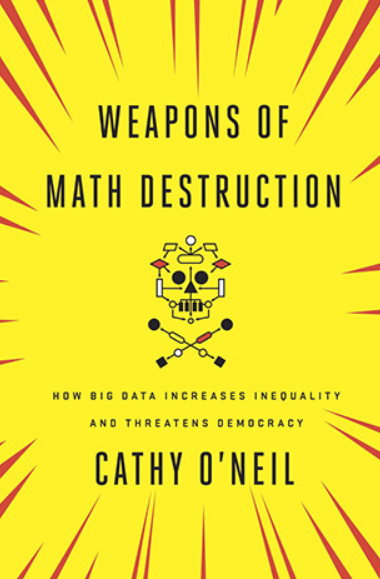
We live in the age of algorithms. Cathy O’Neil exposes the issues behind this reality and shows the dark side of Big Data.
O’Neil shows how much power these so-called black boxes have in our society and how it encourages discrimination. Weapons of Math Destruction calls for more responsibility and regulation on these algorithms.
If you’re interested in the ethical considerations in using AI to make policy decisions, sort resumes, target voters, and more, this book is an accessible introduction to the issues around AI and society.
13. If Then: How the Simulmatics Corporation Invented the Future by Jill Lepore
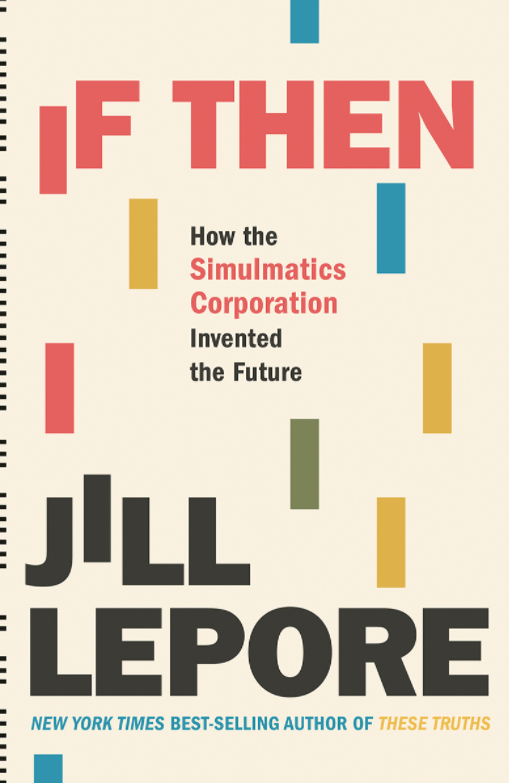
Before Facebook, Google and Amazon, there was the Simulmatics Corporation. Founded in 1959, this company aimed to create computer models of citizens to help candidates win elections or manipulate buying behavior.
Simulmatics included clients such as John F. Kennedy, the New York Times, and various major manufacturers. If Then is a cautionary tale of the dangers of founding a whole new industry– an industry designed to collect, model, and predict people’s behavior all over the world.
If you like to know more about how the Big Data economy started, this book will help you understand one of the first ventures into mixing computing, politics, and the behavioral sciences.
14. The Annotated Turing by Charles Petzold
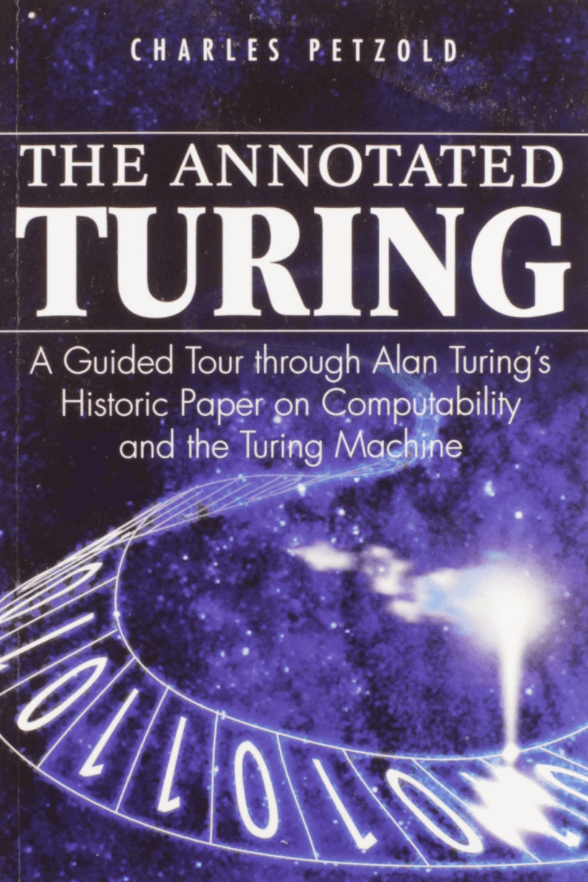
Alan Turing is said to be the founding father of artificial intelligence.
Before computers even existed, Turing explored what it meant for something to be computable and asked the question, “can machines think?”.
In this book, Charles Petzold elaborates on Turing’s 36-page paper, giving the reader more context to understand his work.
Alongside this review, Petzols dives into Turing’s own biography: his years in academia, how efforts cracking codes in WWII, and his unjust prosecution as a homosexual.
Don’t miss out on this book if you’re a big fan of computer history and want to know more about the birth of artificial intelligence.
15. The Alignment Problem: Machine Learning and Human Values by Brian Christian
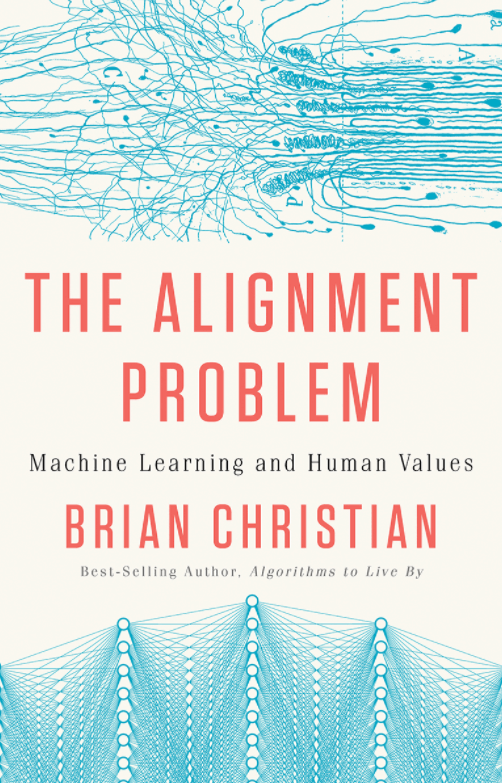
Best-selling author Brian Christian discusses the so-called “alignment problem”: where the machines we trust end up causing more harm than good. Algorithms are steadily replacing human judgment.
Autonomous vehicles are now rolling out, sharing the road with people. Algorithms are being implemented in prisons, hospitals, and corporations to make decisions.
Christian accounts for what people are doing to prevent AI from perpetuating biases and discrimination. This book sprawls many fields and is sure to capture the interest of AI researchers, legal scholars, and business owners alike.
If you’re interested in how vague instructions and bad data can lead to catastrophe, pick up your copy today!
16. Speech and Language Processing by Daniel Jurafsky and James Martin
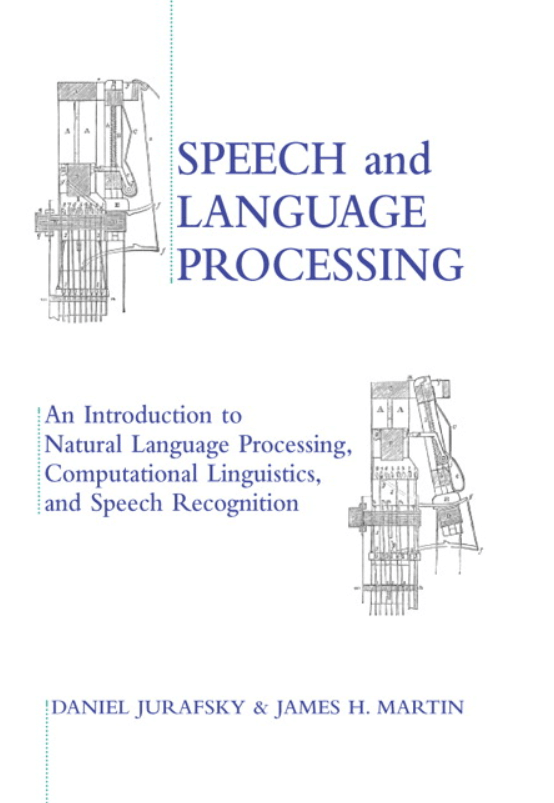
Natural language processing is a hot topic in the field of AI. These days, more and more algorithms and software rely on correctly parsing meaning from text and speech. If you want to stay ahead in this field, you’re going to need a solid foundation.
Speech and Language Processing has everything you need to know about language technology.
The authors take an empirical approach to the subject. The authors cover information extraction, speech recognition, speech synthesis, and language modeling, among others.
Most importantly, Jurafksy and Martin provide a wide array of topics related to computational linguistics, which bridge the gap between language and computer science.
If you’re interested in the field of natural language software, this is the book for you.
This book covers a huge number of topics in its twenty-five chapters and features a fifty-page bibliography with resources that might be useful for any practicing linguist or NLP engineer.
17. Do Androids Dream of Electric Sheep? by Philip K. Dick
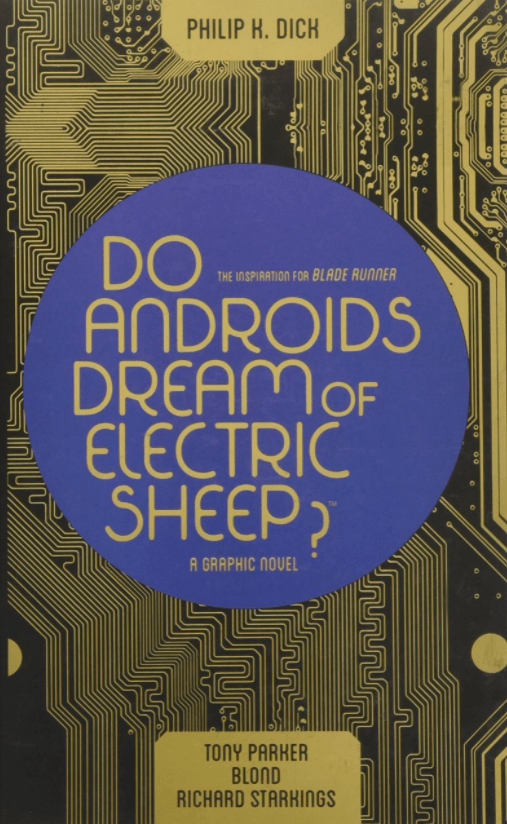
Though mostly known as the inspiration of Blade Runner, this novel is a science fiction classic!
It follows a futuristic dystopian story that sheds light on the philosophical implications of creating androids.
The main protagonist, Rick Deckard, is a bounty hunter who hunts down a new generation of nearly human-like androids. During his investigations, he realizes he empathizes with these androids and struggles to complete the task.
Philip K. Dick provides a suspenseful and thought-provoking story about empathy and how capturing human intelligence may mean capturing the darker sides of humanity as well.
This book is a must-read for sci-fi fans, especially if you can handle the darker themes brought up in this novel.
18. The Diamond Age by Neal Stephenson
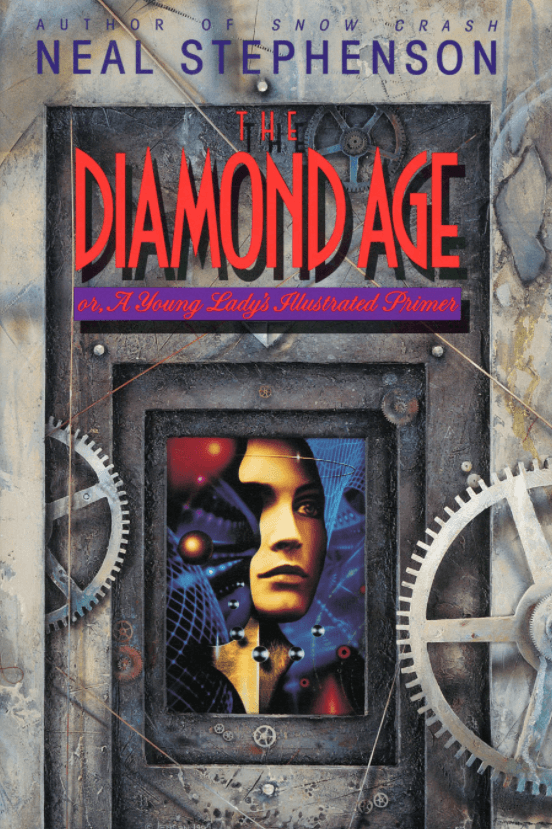
This epic novel follows a nanotech engineer who steals a supercomputer device known as “A Young Lady’s Illustrated Primer” for her daughter.
Unfortunately, the smuggled copy falls into an underprivileged girl.
The Diamond Age shows Stephenson’s deep skill as a writer and shows his interest in both the historical and the futuristic. Interwoven with the novel’s plot is the critique of artificial intelligence as being possible.
The world of The Diamond Age refers to AI as “pseudo intelligence”, mocking the failure of machines to replicate the intelligence of a real person fully. In the novel, humans called “ractors”, rather than AI, interact with people in a VR environment.
It shows that there is something inherently missing in a machine that will forbid it from ever replacing a human.
19. Avogadro Corp: The Singularity Is Closer Than It Appears by William Hertling
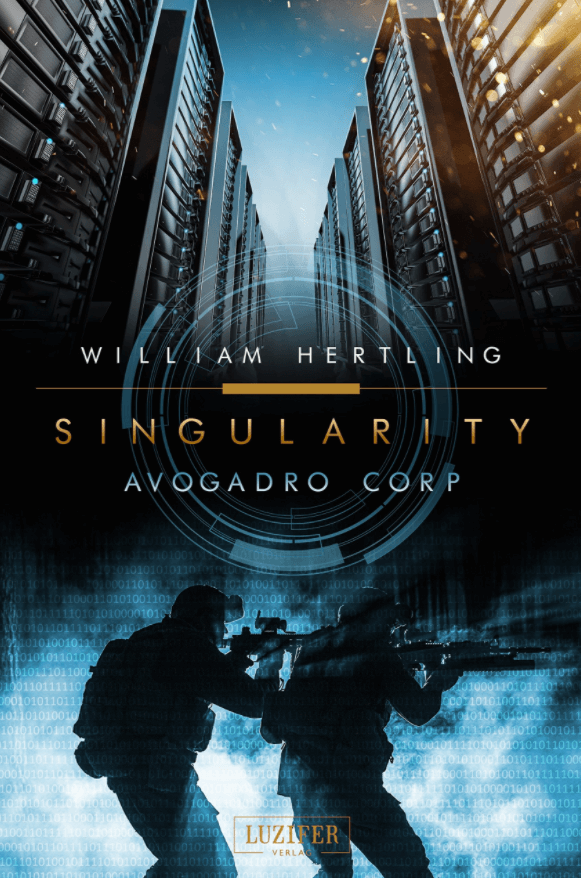
Avogadro Corp is a science fiction novel that tells a story about how AI can evolve from technology that seems commonplace today.
It follows David Ryan, who designed the ELOPe system which aimed to optimize writing email. David accidentally creates a backdoor for the ELOPe system to do whatever it wants.
His team realizes that they’ve just created a system that might just put their entire organization in danger.
It’s a frightening story that shows how possible it is for AI to manipulate real humans into doing its bidding. If you’re into novels grounded in reality and are also thrilling reads, this book is for you!
20. I, Robot by Isaac Asimov
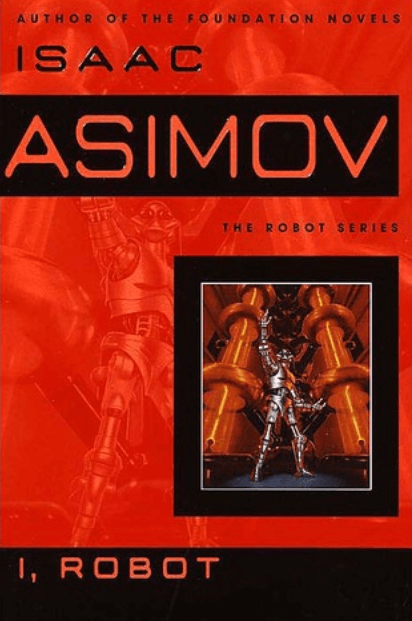
I, Robot is a short story collection by science-fiction writer Isaac Asimov. Asimov showcases nine different stories that tackle the moral implications of human-like AI.
These stories were originally published in science fiction magazines in the 1940s. Asimov’s emphasis on the ethical considerations of AI has become a great influence in the realm of science fiction.
Asimov’s Three Laws of Robotics are described in this collection and form a unifying theme for the work. This guide on making sure that robots remain “ethical” is an issue even until now.
Currently, futurists and engineers alike continue to discuss the implications of ethical programming.
Conclusion
Artificial intelligence is such a vast field that it might get you overwhelmed.
It’s a good idea to skim through the many subtopics and specializations to see what interests you most.
Hopefully, this list of the 20 best books about artificial intelligence serves as a good jumping-off point for your reading journey through AI.
Are there any books about artificial intelligence we missed?
Let us know what you think.




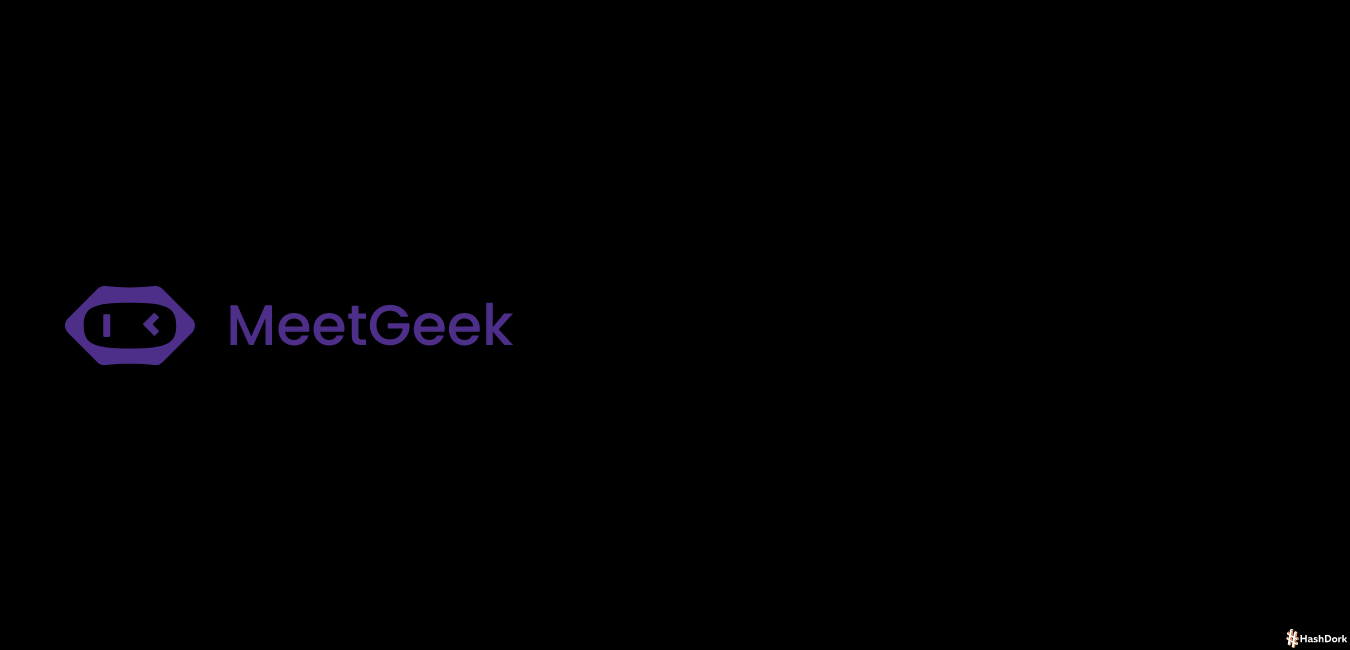
Could you recommend a similar book about IA in Slovak or Czech?
For my son at a higher level as literature for his yearbook.
Well thank you
At the second level of the ZS…I am correcting ????